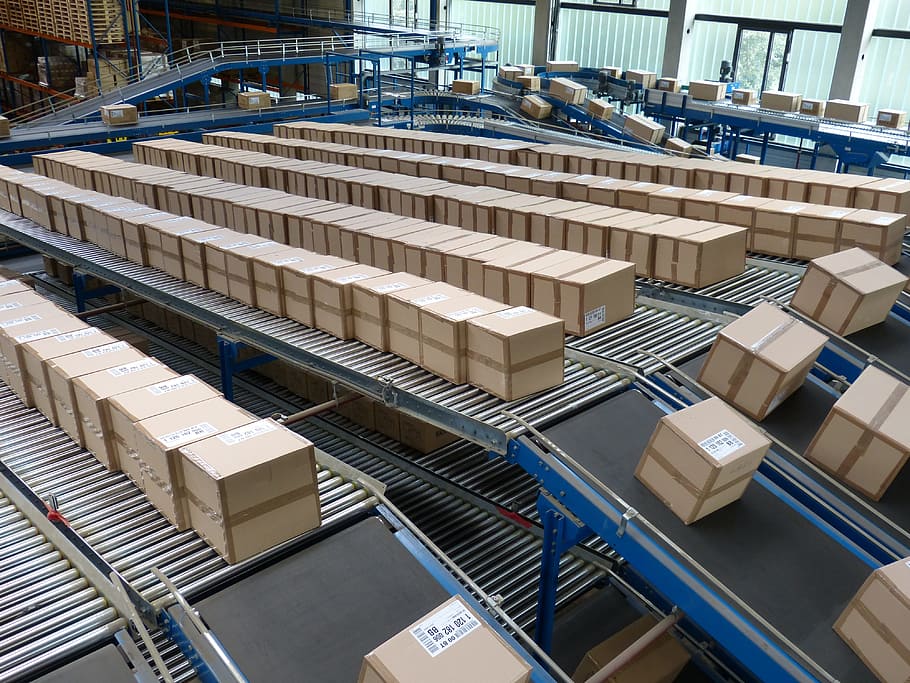Governments have to revisit their policies on protecting MSMEs. Manufacturing for local markets cannot be ignored and this calls for much more role for local government institutions. Panchayats and local bodies to be given more funds and power to frame policies for promoting and protecting local industries needed for the regional markets.
Micro, small and medium sized industries are increasingly under stress everywhere. They are struggling to survive in the market alongside global brands and are completely unprotected. However, while MSMEs vie for global attention, it is important to ensure that products and services are also available for local consumption. This calls for protecting industries and businesses that cater to the local markets and regions. During the Covid-19 induced lockdown, several regional and local markets faced supply disruptions for different products. Similar lockdowns can happen again, where there can be major disruptions in supply chains.
While interdependence between different regions of the world will remain, local self-reliance with regard to consumer goods, essential medicines and food products need to be strengthened. Though lockdown has proved to be a boon for E-Commerce businesses, often orders are delivered late. Many orders are not even accepted. If the supplier is in the same region or where the trucks and courier is still in operation, there has been smoother delivery. Particularly, if the product has to arrive from another region/state or a country, it may face delays. Whereas in some cases interstate truck movement, too, was affected, as in the case of Kerala – Tamilnadu and Karnataka, there’s major disruption.

Village micro and cottage industries as well as small enterprises contribute significantly by way of supplying goods in the local markets, but they often encounter several challenges in their operations: lack of demand, competition from cheap imported products, high labour costs and power disruptions are just a few of them. In this context it must be pointed out that many of India’s traditional industries are on the verge of collapse, if not already collapsed. Products of handloom weavers, bamboo units, pottery sector, artisans & handicrafts men, blacksmiths, village-cottage industries are all useful and needed for our daily consumption. However, consumers prefer buying cheaper imports.

Reservation of products for manufacturing in small scale sector
In this context, it is appropriate to mention the Industries (Development and Regulation) Act, which statutorily comprised a reservation policy covering products for exclusive manufacture in the MSME sector, which was provided for in the Act. The Reservation policy was meant to ensure the increased production of consumer goods within the MSME sector. Introduced in the year 1967 with 47 items, the list gradually expanded to include more than 800 items. This policy had legal backing when the Industries Development and Regulation Act 1951 was amended in March 1984, empowering the Government to reserve items. Keeping up with the trend of liberalization and reforms, the government abolished the Small Scale Product Reservation Policy by 2018.
This policy was helpful and acted as a protective measure for the sector and helped large scale enterprises and corporates from encroach into the MSME space.
With the opening up of the economy and under the new world trading system under the world trade organization (WTO), products from around the world started flooding the local markets, previously dominated by MSME producers. As consumers started shifting to cheaper imported ones, it also had its effect on the competitiveness and sustainability of local manufacturing units. When it comes to a choice between low priced vs high priced products, consumers obviously favour cheaper imported products. When local markets are flooded with cheap imported products, it cuts the demand of local small-scale manufacturing industries.
Protect and promote MSMEs: role of local governments
In this context, governments have to revisit their policies on protecting MSMEs. The approach has to both protect and promote the sector. But there is a need to significantly change the MSME policy orientation, particularly with regard to manufacturing and production for the local markets.
With the small-scale sector being primarily catering to local markets and regions, local government institutions and regional authorities such as Gram-Panchayats and Municipal governments can play a better role in protecting and promoting micro, small and village industries. Also, the time has come to reintroduce a reservation policy for exclusive manufacturing in the MSME sector, with a focus on labour-intensive job creation technologies. However, this reservation policy must focus on ensuring local self-sufficiency and employment generation.
Suggestions for protecting MSMEs
· A new broad list of products needs to be identified for small scale sector manufacturing, that must be brought under reservation for exclusive manufacturing. Each local government in the region may be given authority to identify and decide upon products that are essential for that particular region, from that broad list.
· Each local government or regional authority may be authorized to formulate policies, promotional programmes, incentives and support for these lists of sectors/products which are in demand and needed for that region.
· Central government MSME schemes and programmes for the sector must be routed through LGIs in order to ensure better implementation.
· Technology relevant for the region and industries suited for the locality, with potential for job creation needs to be identified and encouraged at the local level.
· Mandatory procurement policy for retail shops from local manufacturers: A reservation policy for retail shops in the region to procure and sell a certain percentage of products manufactured within that Panchayats or in the area falling under that particular regional government.
This approach will have the following advantages:
· More jobs within the region itself
· Products that are in demand are promoted, therefore its availability is ensured.
· Mandatory procurement requirements from local manufacturers will ensure demand for the local manufacturing industry.
· When people can find jobs within the region/local areas, migration in search of employment may come down
· Less global supply chain exposure and dependency on essential supplies from other destinations
To conclude, the time has come for us to have an economy where all its stakeholders have a role to play. Nobody should be left out. All are needed and policies should be framed in such a way that without anyone being left out.
It’s time to revisit reservations of select items for exclusive manufacturing by local industries, i.e., micro and small-scale units, which will ensure much needed job and income security for a large chunk of MSME workers. Thus, the sector will also weather any storm in the days ahead.
(P. Koshy), Email: caushie07@gmail.com
Author Profile
- Editor, Global SME News & World of Startups. He writes on topics related to SMEs, Entrepreneurship, Startups and HR & labour issues. He is involved in projects that support startups and SMEs and can be reached at caushie@gmail.com
Latest entries
 FEATURED25 November 2024Rethinking Work Hours: The Case for Balance in SME Growth Strategies?
FEATURED25 November 2024Rethinking Work Hours: The Case for Balance in SME Growth Strategies? AI25 November 2024Microsoft’s ‘Zero Day Quest’: A $4 Million Challenge to Revolutionize AI and Cloud Security!
AI25 November 2024Microsoft’s ‘Zero Day Quest’: A $4 Million Challenge to Revolutionize AI and Cloud Security! FEATURED5 November 2024Collaboration Agreement Signed Between Mubadala Energy and Perusahaan Listrik Negara (PLN) to Explore Harnessing Natural Gas Discoveries
FEATURED5 November 2024Collaboration Agreement Signed Between Mubadala Energy and Perusahaan Listrik Negara (PLN) to Explore Harnessing Natural Gas DiscoveriesFEATURED23 October 2024Resilient Trade Amid Global Uncertainty: How Intra-BRICS Commerce is Shaping a New Economic Order















Certainly a revisit of policy is called for.